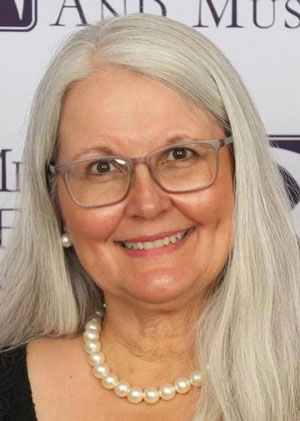 Mining engineering professor selected as honorary member of AIME
Mining engineering professor selected as honorary member of AIME
Barbara Arnold, professor of practice in mining engineering, has been awarded honorary membership in American Institute of Mining, Metallurgical, and Petroleum Engineers (AIME). AIME honorary membership is one of the highest honors that the institute can bestow on an individual. Honorary membership is awarded in appreciation of outstanding service to the institute or in recognition of distinguished scientific or engineering achievement in the fields embracing the activities of AIME and its member societies.
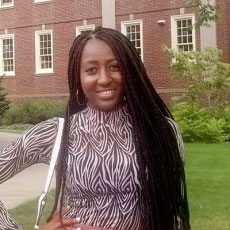 2020 Millennium Café Pitch Competition winner
2020 Millennium Café Pitch Competition winner
The 2020 Millennium Café Pitch Competition was held virtually on June 2, 2020. Sponsored by PPG Industries, the Millennium Café Pitch Competition is an opportunity for graduate students to pitch research in two minutes or less using no more than four supporting slides. Sandra Ike won first place for her presentation titled "Creating Graphitic Carbons from Biopolymers."
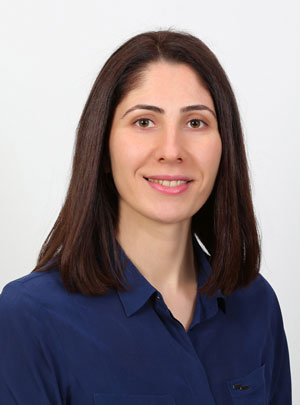 EI faculty member joins the Institutes of Energy and the Environment
EI faculty member joins the Institutes of Energy and the Environment
Hilal Ezgi Toraman, an assistant professor in the College of Earth and Mineral Sciences with a joint appointment in the College of Engineering, has become a cofunded faculty member in the Institutes of Energy and the Environment (IEE). Toraman’s research interests include chemical reaction engineering with a focus on developing new processes, materials, and technologies for efficient and sustainable use of shale gas, biogas, biomass, and plastic waste. Her research is in line with the Stewarding Our Planet’s Resources thematic area of Penn State’s strategic plan. Toraman was also recently named the Virginia S. and Philip L. Walker Jr. Faculty Fellow in Materials Science and Engineering and Fuel Science Program at Penn State.
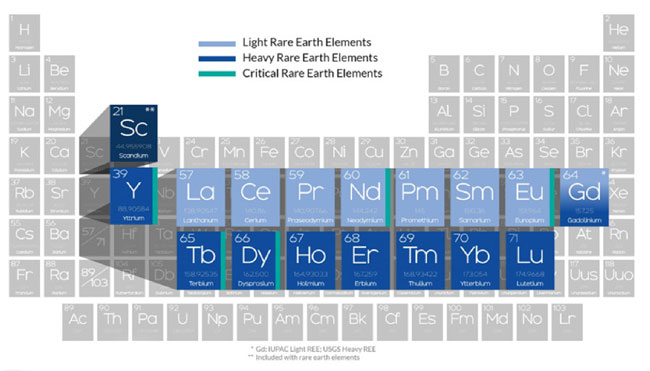 Penn State, Colorado School of Mines will support U.S. need for critical minerals
Penn State, Colorado School of Mines will support U.S. need for critical minerals
Penn State has entered a memorandum of understanding (MOU) with the Colorado School of Mines to establish a collaboration designed to be responsive in supporting the United States’ need for critical minerals. Through the MOU, the two universities will partner on research to support U.S. producers and consumers of critical mineral commodities and help advance the country’s manufacturing sector while developing a well-trained workforce to meet the demands on U.S.-sourced critical minerals.
“Both schools are committed to developing new innovations to enable a complete U.S. capability for critical minerals, from basic science to supply chain through to production,” said Lora Weiss, Penn State’s senior vice president for research. “Together we span from Appalachia to the Rockies and collectively we have the technical base and established relationships with stakeholders to realize the full potential value of our natural resources. Our combined team is well positioned to be extremely responsive to the country’s critical minerals needs.”
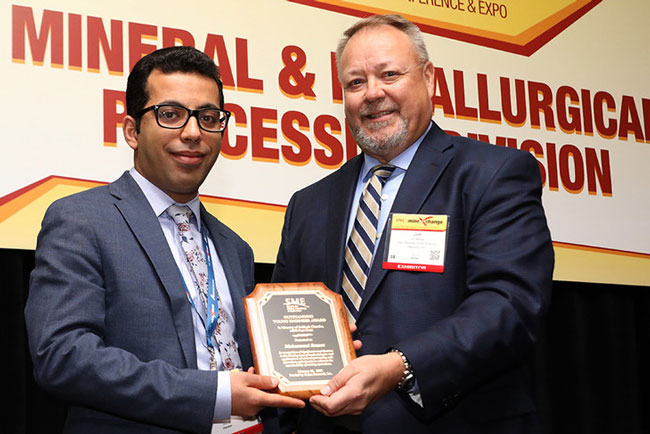 Rezaee named outstanding young engineer
Rezaee named outstanding young engineer
Mohammad Rezaee, assistant professor of mining engineering in the John and Willie Leone Family Department of Energy and Mineral Engineering, has been awarded the Outstanding Young Engineer Award from the Society for Mining, Metallurgy, & Exploration’s (SME) Mineral and Metallurgical Processing Division. The Outstanding Young Engineer award was created in 1984 and recognizes a young individual, age thirty-six or younger, with a significant contribution within the mineral processing and extractive metallurgy discipline. Rezaee, who holds the Thomas V. and Jean C. Falkie Mining Engineering Faculty Fellowship in the College of Earth and Mineral Sciences, was selected for “his significant contributions in the development of methodologies and applications of mineral processing unit operations and circuits to enhance the sustainability of mining operations.” He received the award at the SME 2020 annual Conference & Expo held in Phoenix, Feb. 23-26, 2020.
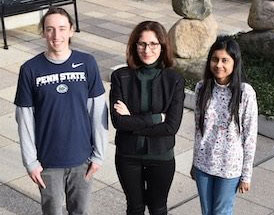 Energy, chemical engineering professor receives fellowship
Energy, chemical engineering professor receives fellowship
Hilal Ezgi Toraman, assistant professor of energy engineering and chemical engineering, has been named the Virginia S. and Philip L. Walker Jr. Faculty Fellow in Materials Science and Engineering and Fuel Science Program. The fellowship was awarded to Toraman for her contributions to teaching, research, and service in the John and Willie Leone Family Department of Energy and Mineral Engineering.
“I want to convey my sincere thanks to Virginia and Phillip Walker for supporting me as a researcher in the field of fuel science,” Toraman said. “The Virginia S. and Philip L. Walker Jr. Faculty Fellowship is not only a source of funding to further my contribution in teaching, research, and public service but also a great source of motivation.”
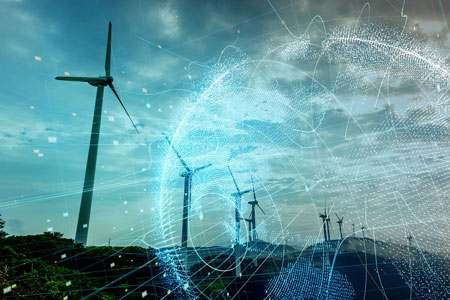 Interdisciplinary team wins Department of Energy Optimization Challenge
Interdisciplinary team wins Department of Energy Optimization Challenge
A team of Penn State researchers is part of the first round of winners for the Department of Energy’s (DOE) Grid Optimization Competition. Presented by the DOE’s Advanced Research Projects Agency-Energy, the selective competition presents challenges for the development of optimization algorithms for a crucial set of operational problems faced by the United States’ power grid. The team, led by Uday V. Shanbhag, the Gary and Sheila Bello Chair and professor in the Harold and Inge Marcus Department of Industrial and Manufacturing Engineering in the College of Engineering, received $100,000 to advance their methods and share their technology with industry partners. Future competitions, beginning with challenge two, will build on the models used in challenge one, but may include complicating factors such as solving larger network models, optimizing power flows over both transmission and distribution systems, contending with uncertainty and discreteness, leveraging power flow control devices, and increasing model detail. Challenge two will likely continue its focus on optimal power flow and disburse fewer, but larger, awards.

